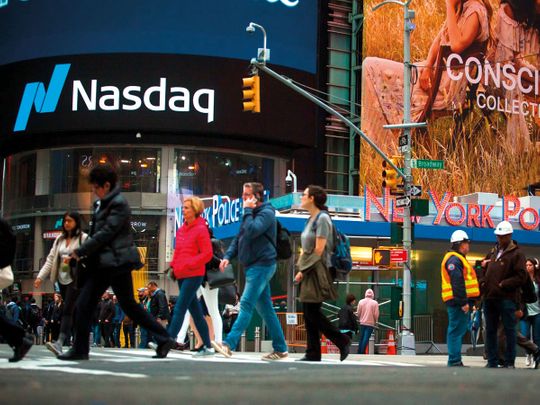
Risk aversion dominates sentiment
Risk aversion dominated markets on Friday as stocks slumped on Wall Street and in Europe, oil prices fell from seven-year highs earlier in the week and bond prices surged with traders scurrying for the relative safety of government debt.
Concerns about how aggressively the Federal Reserve will tighten monetary policy shook investors, as did poor subscriber growth reported late Thursday at Netflix Inc cast a pall over the market and sent its shares plunging 21%.
The Nasdaq, the standout performer of the stock market boom since the pandemic began, has fallen more than 10 per cent from a November all-time high and is poised for its worst week since markets crashed in March 2020.
With expectations the Fed will raise interest rates up to four times this year and also reduce its balance sheet, fear of a hard landing has risen among investors.
But a slowing economy in the months ahead will probably give the Fed second thoughts, said Steven Ricchiuto, US chief economist at Mizuho Securities USA LLC.
“By the time we get to the second rate hike, everything will be rolling over enough that everybody will back off from these calls,” he said. “The growth numbers will be slowing much more quickly than the Fed anticipated.” U.S. Treasury and euro zone government bond yields fell as concerns about potential conflict in Ukraine also dented risk appetite and stock market drops increased demand for the debt.
The yield on 10-year Treasury notes was down 9.4 basis points to 1.740%, a sharp drop from a two-year high of 1.902% touched on Wednesday.
In Europe, the German, French and Italian indices fell almost 2 per cent, with the broad Euro STOXX index of 600 leading regional companies closing down 1.84 per cent. MSCI’s all-country world index fell 1.37 per cent.
On Wall Street, the Dow Jones Industrial Average slid 1.20%, the S&P 500 fell 1.74% and the Nasdaq Composite lost 2.39%.
Markets in Asia were broadly lower, including in China where benchmark mortgage rates were cut on Thursday in the latest move to prop up an economy soured by its property sector.
But the sharpest drops in recent days have been in US markets, with the benchmark S&P 500 heading toward its worst month since late 2020.
— Reuters
This news is republished from another source. You can check the original article here

Be the first to comment